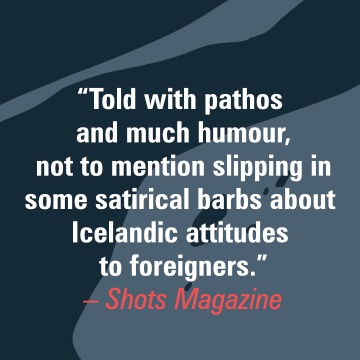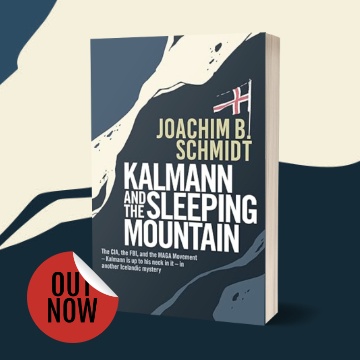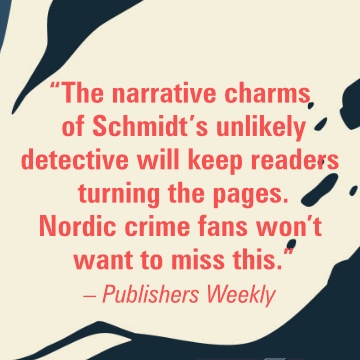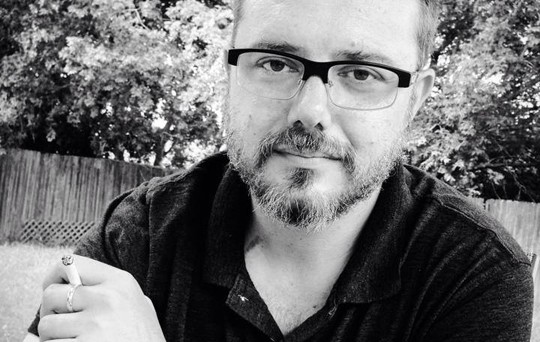
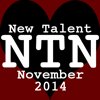 Today we talk to Ed Kurtz, whose novels The Forty-Two, Freight and Angel of the Abyss, represent some of the best indie crime fiction written this year. We’ve reviewed the latter two recently on the site and they both scored five stars. Kurtz’s stories combine enthralling characters in a finely-detailed and atmospheric setting to produce writing with considerable emotional heft but also mainstream crossover appeal. It is just a matter of time before Ed Kurtz becomes a household name but, as ever, true crime fiction lovers get to know about him first.
Today we talk to Ed Kurtz, whose novels The Forty-Two, Freight and Angel of the Abyss, represent some of the best indie crime fiction written this year. We’ve reviewed the latter two recently on the site and they both scored five stars. Kurtz’s stories combine enthralling characters in a finely-detailed and atmospheric setting to produce writing with considerable emotional heft but also mainstream crossover appeal. It is just a matter of time before Ed Kurtz becomes a household name but, as ever, true crime fiction lovers get to know about him first.
Please can you tell us a little about yourself?
Howdy! I’m a crime, horror, and western author in Austin, Texas, where I’ve lived most of my adult life, though I hail from Arkansas. I got started in horror around 2007, when I started publishing short stories in small market magazines and anthologies before selling my novel Control first to Thunderstorm Books for the limited hardcover edition, and later to Nightscape Press for the paperback and ebook. Since then I’ve done my little ode to 70s grindhouse horror, Dead Trash, a western revenge novella called A Wind of Knives, and three books just this year: The Forty-Two, Freight, and Angel of the Abyss. I was also selected for inclusion in this year’s Best American Mystery Stories by Otto Penzler and Laura Lippman for my story A Good Marriage, which is a tremendous privilege and honor.
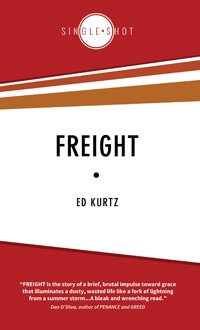 Your recent novella Freight takes an unusual look at the problem of people trafficking via a rail yard. Where did the idea behind it come from?
Your recent novella Freight takes an unusual look at the problem of people trafficking via a rail yard. Where did the idea behind it come from?
For a number of years I held a day gig at a utility company here in Texas, where I became acquainted with this salty old boy on the maintenence crew. He and I would often take smoke breaks together and he’d tell me all sorts of great stories about his life and experiences, one of which concerned his days as a railroad brakeman in the 1970s. He told me about this little junction town they used to roll through with an abnormally high crime rate, and the seed of Freight was planted in my mind. I had no idea what Enoch was going to find in the freight car until he did, and it went from there.
How did it end up with Crime Factory?
My Aussie mates at Crime Factory had asked me to do a horror story for their horror edition a year or two back, which I gladly did. It was called Consent. Later I spent some time with Liam Jose when he visited the States, when I expressed a lot of enthusiasm for Jed Ayres’ Fierce Bitches, the first of Crime Factory’s Single Shot line, and told him I’d really love to do one down the road apiece. I reckon he took me seriously, because they ended up asking me if I’d do it, and I already had Freight in my mental torpedo cylinder, all ready to fire.
A mythic lost film is at the heart of your new novel Angel of the Abyss, and The Forty-Two is set around a grindhouse cinema. Even Freight has a movie-related plot twist. Where does your love of movies come from?
I’ve loved cinema for as long as I can remember. By adolescence I wanted to be a filmmaker, so I moved out to Los Angeles at the first opportunity and spent a year waiting for Hollywood to realise what a visionary genius I thought I was. That didn’t work out quite too well, but my obsession for films – particularly 1970s international exploitation fare and early Hollywood stuff – only grew. I love writing about movies and the people who make and distribute and obsess over them as much as I do. I’ll only stop when the masses finally tell me to give it a rest… which is probably bound to happen eventually. But until then I still have a few cinematic tales in the pipeline.
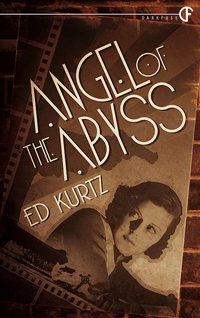 A large part of Angel of the Abyss is set in Hollywood towards the end of the silent era and just before the rise of the major studios. Why did you choose this period and what kind of research did you do?
A large part of Angel of the Abyss is set in Hollywood towards the end of the silent era and just before the rise of the major studios. Why did you choose this period and what kind of research did you do?
I have a huge interest in lost films. More films from the silent era have been lost than survived, due to poor preservation and planning, but also the highly degradable type of film stock used in those days. I once had a crazy idea about a documentary series based on finding lost films, but of course the vast majority are never found. From that, the basic idea of Angel of the Abyss formed, and I wanted to write about both the actual period in Hollywood history and the modern Hollywood/Los Angeles landscape from an outsider’s point of view. The former was based on a lot of reading from the period and general interest and knowledge about the films and the system in those days, whereas the latter came mostly from my own time living in the heart of modern Hollywood in the 90s. I have a notion to take the main characters, Graham and Jake, into further adventures in the world of rare and obscure films. There’s a lot of ground to cover there.
Prior to The Forty-Two you were more of a horror author. What’s it been like switching to crime and why did you do it?
To me they’re two sides of the same coin. I often tell people I write about people making bad choices, or about people doing terrible things to each other. The same description can almost always apply to either my horror or crime output, though one tends to focus more on the act and the other on the repercussions, I think. As I’ve gotten older I’ve become less interested in gore or violence for its own sake as well as the supernatural, so crime and noir are a natural fit for me.
Care to make some crime and horror recommendations for our readers?
Horror-wise, anything by Lee Thomas, though especially Dust of Wonderland and The German. I also highly recommend Victor LaValle, whose The Devil in Silver really rocked my world last year. Both Nick Cutter’s The Troop and Chase Novak’s Breed pleasantly surprised me, also. In crime, my fellow DarkFuse author Jon Bassoff‘s debut novel Corrosion is incredibly good, as is Rob Hart’s New Yorked, which comes out next year from Polis Books. I’m also enormously fond of Hilary Davidson‘s Lily Moore series, which starts with The Damage Done.
Finally, what’s coming up next for you? Anything more with DarkFuse?
The wise folks at DarkFuse signed me to a three book deal before Angel of the Abyss was even released, so I’m just finishing up the first of that lot, a dark and rather philosophical noir novel. I’ve already got the other two mostly mapped out as well, as well as a number of short story commitments and a screenplay adaptation in the works, so I should be fairly busy for the short term.
Read our review of Angel of the Abyss, part of New Talent November, here.






